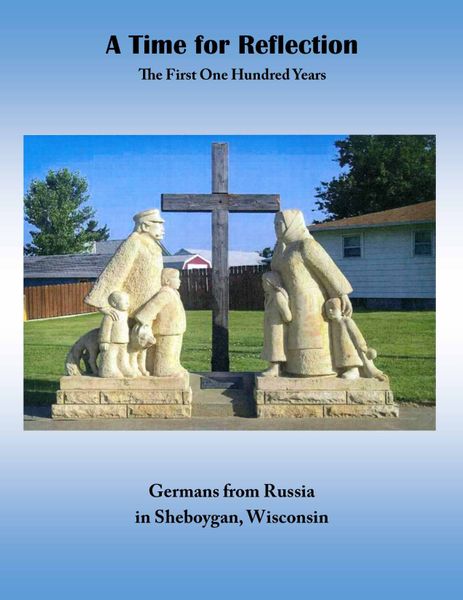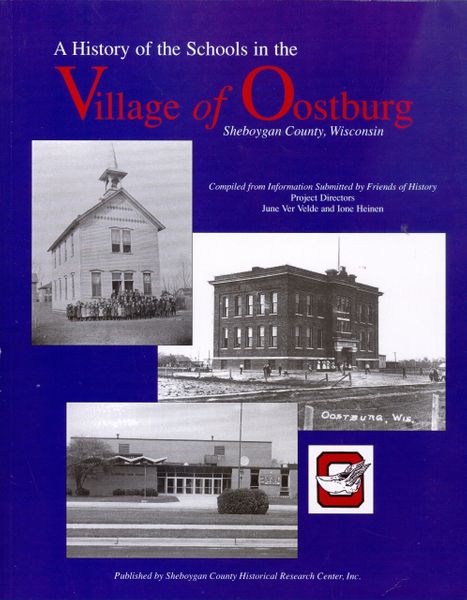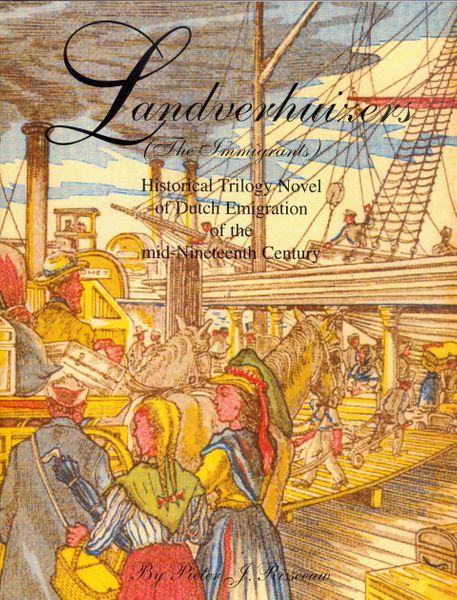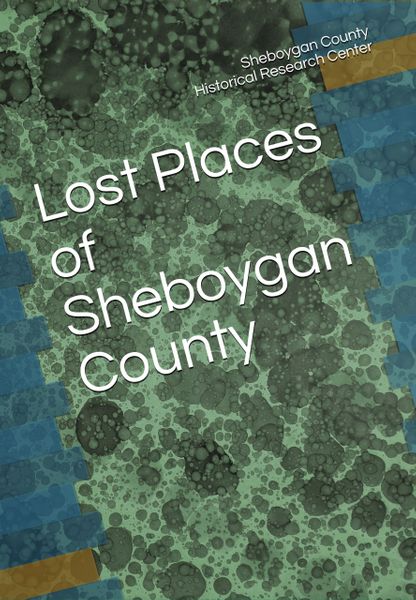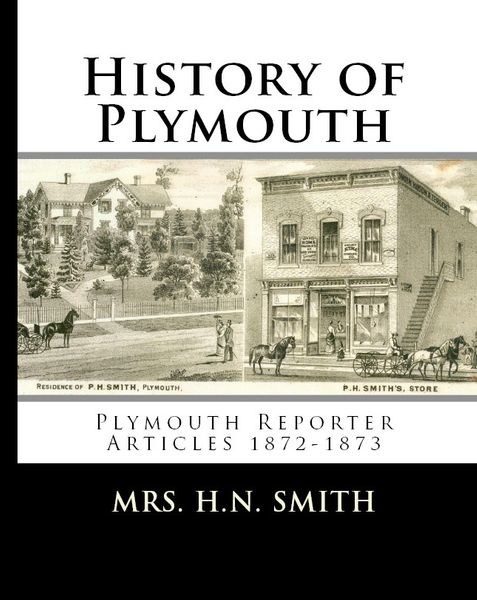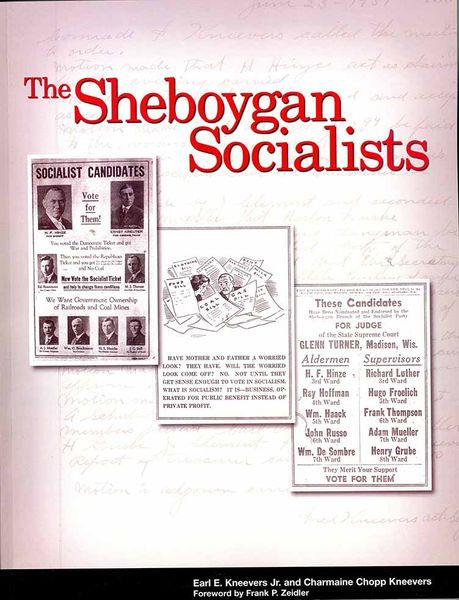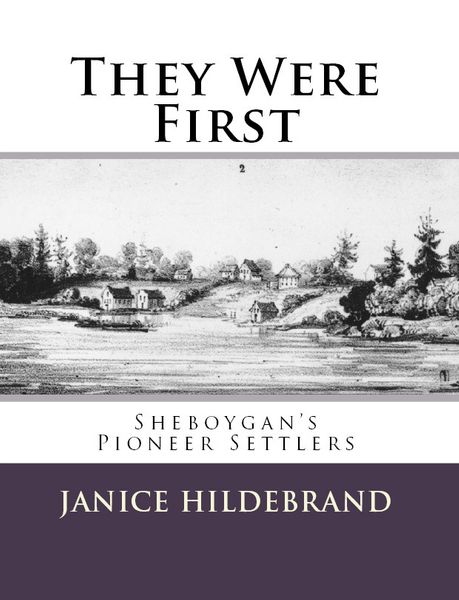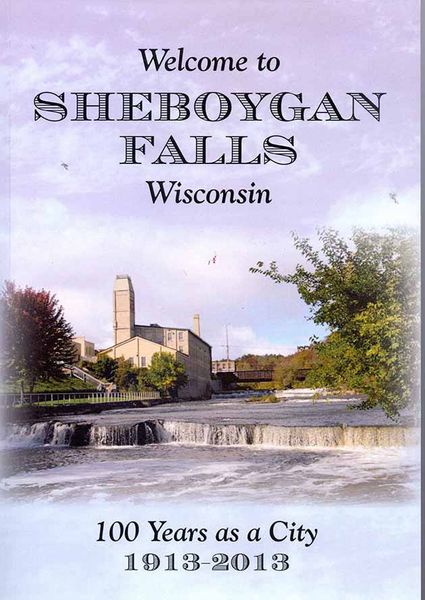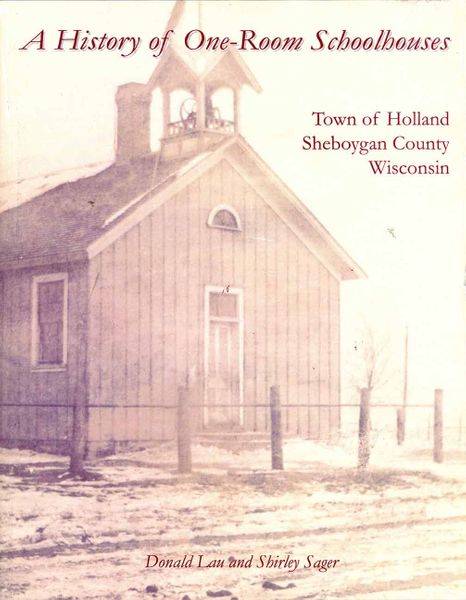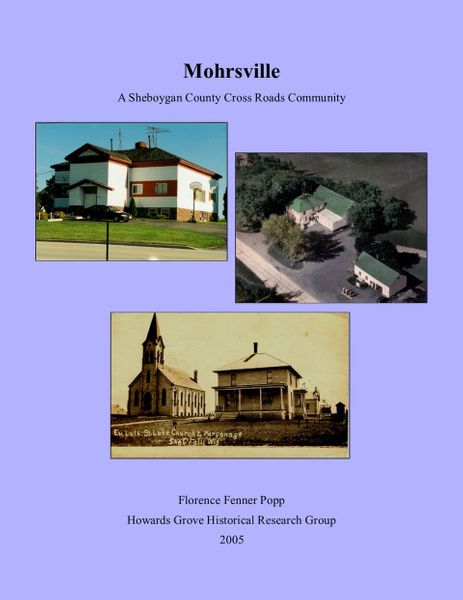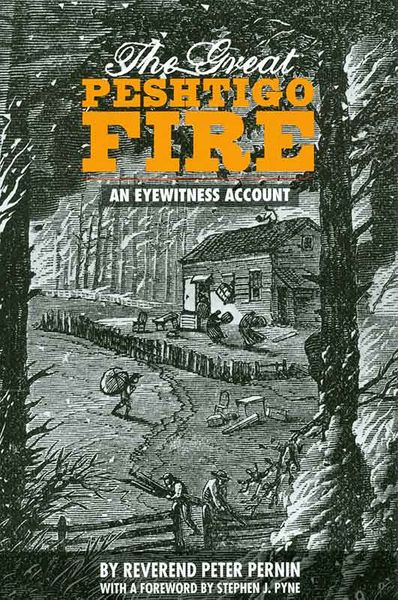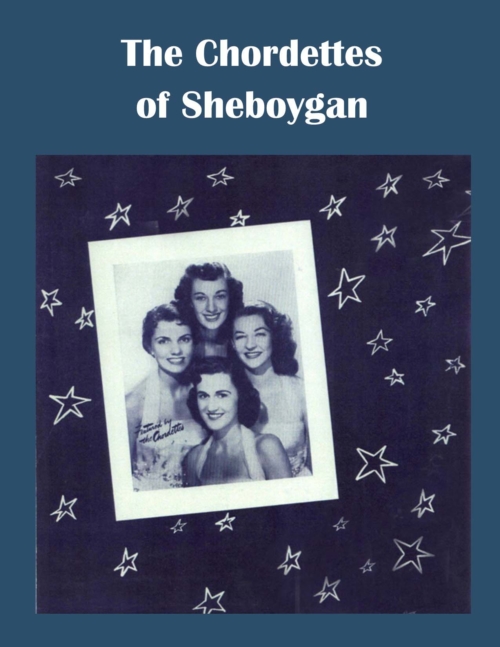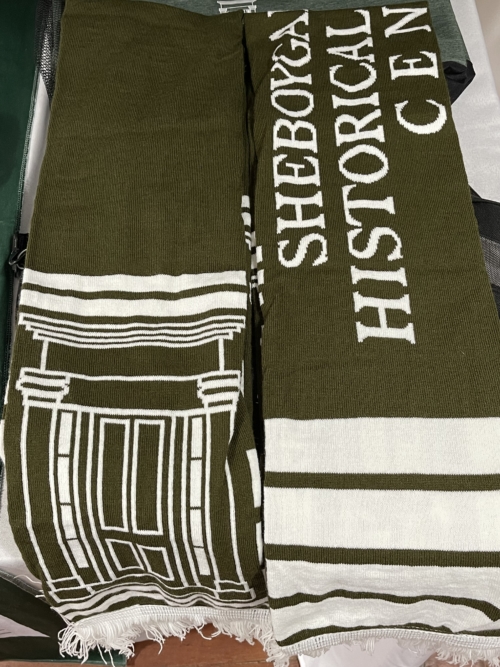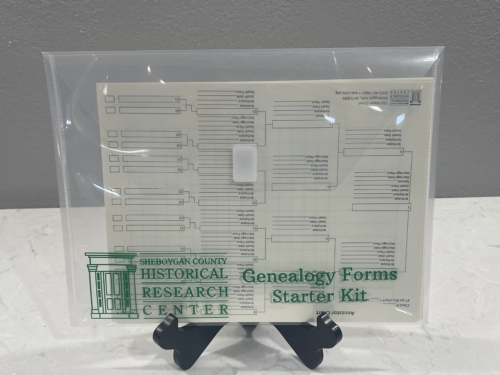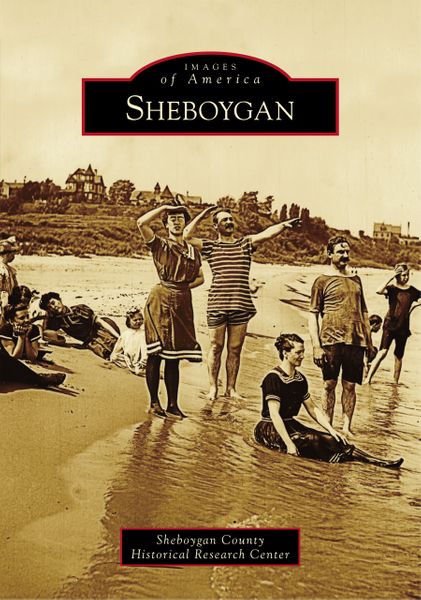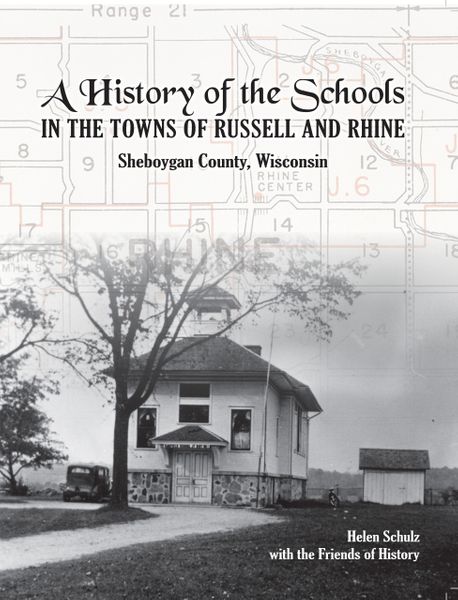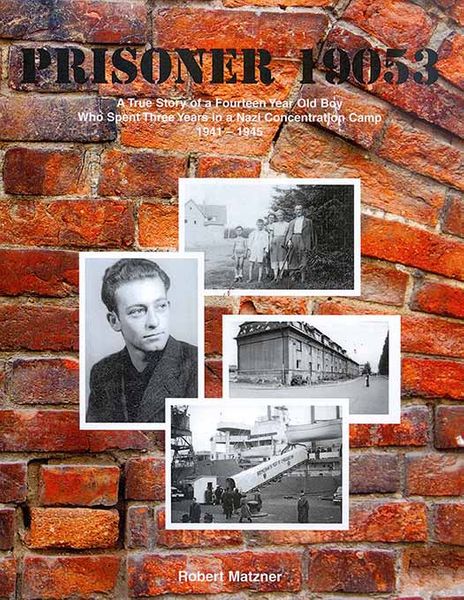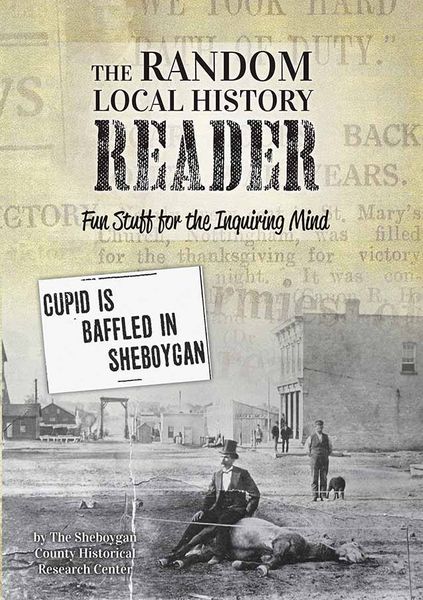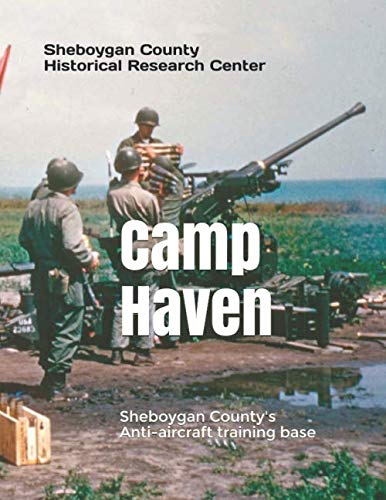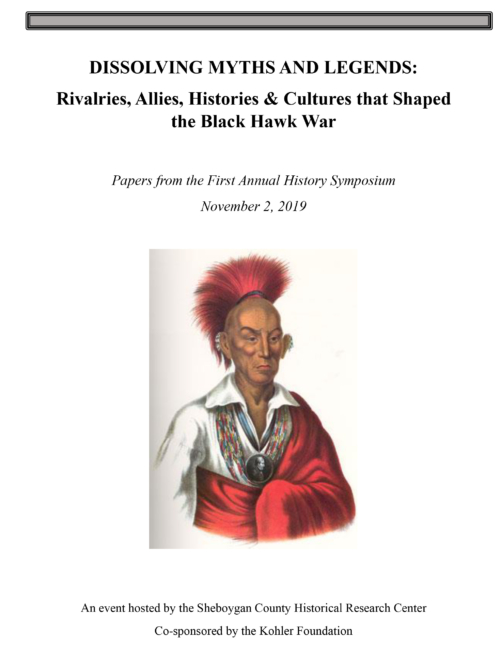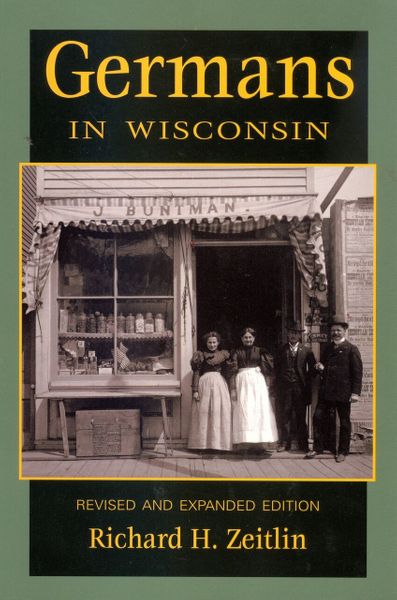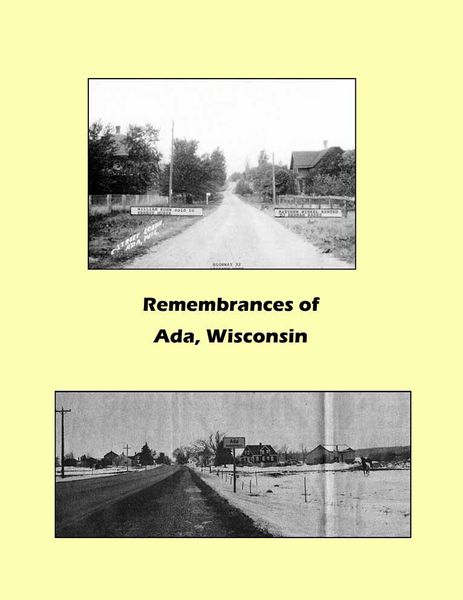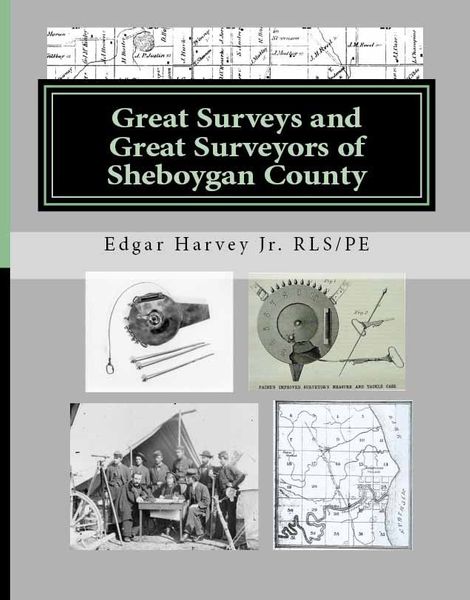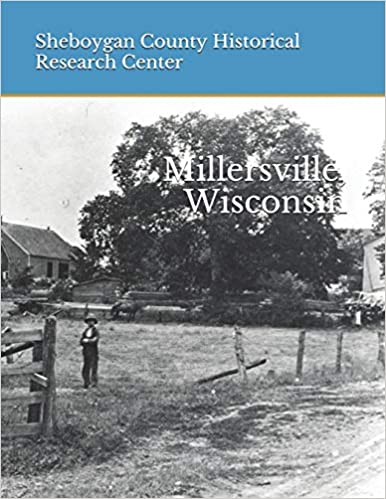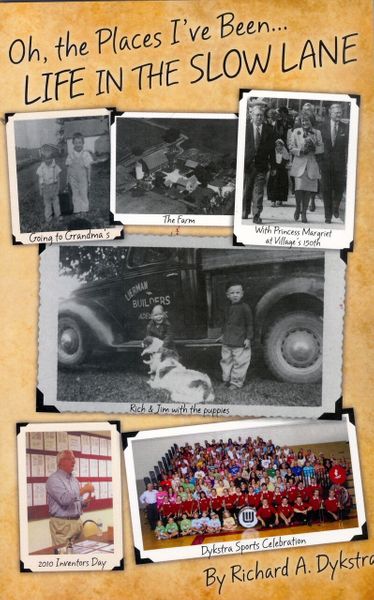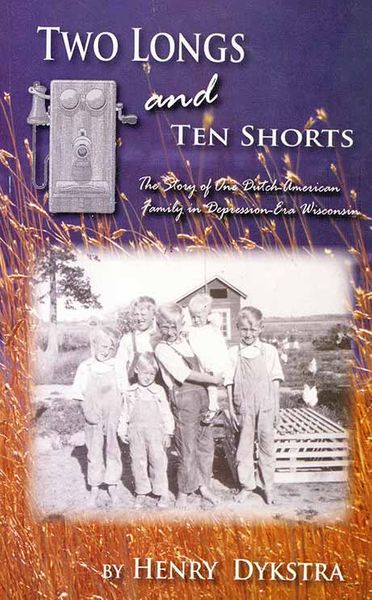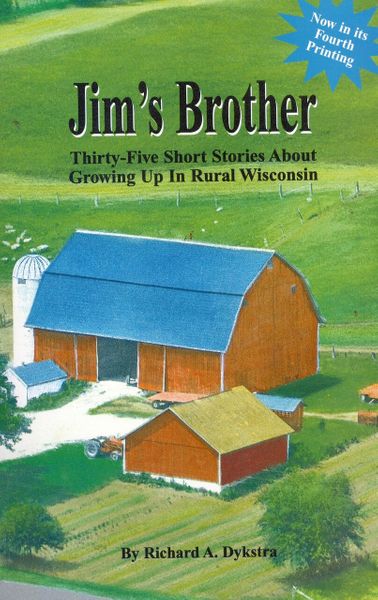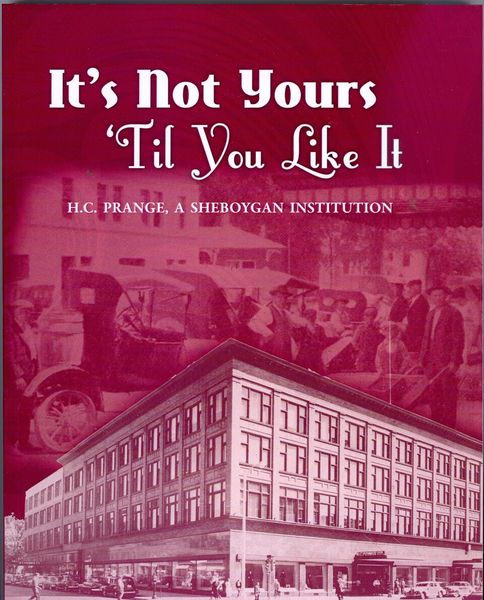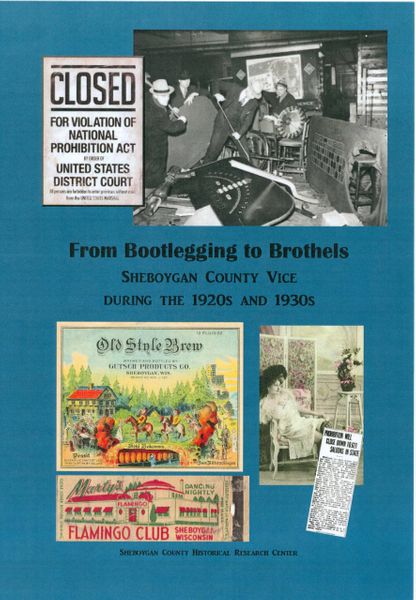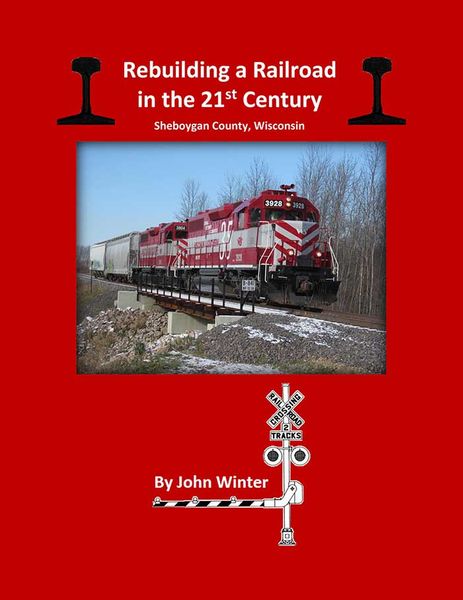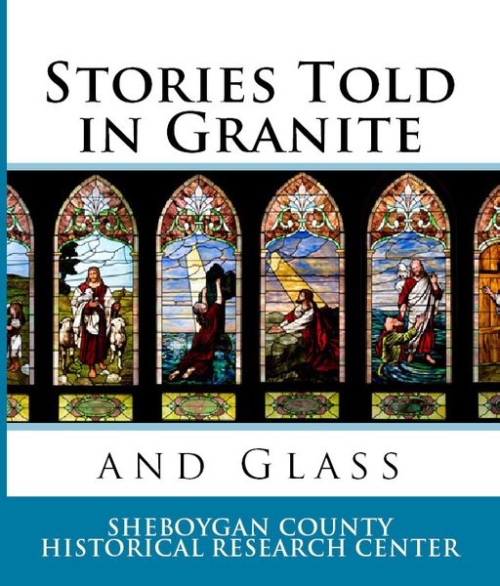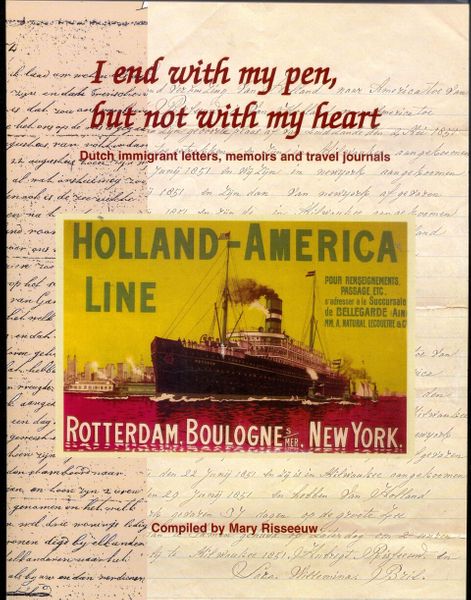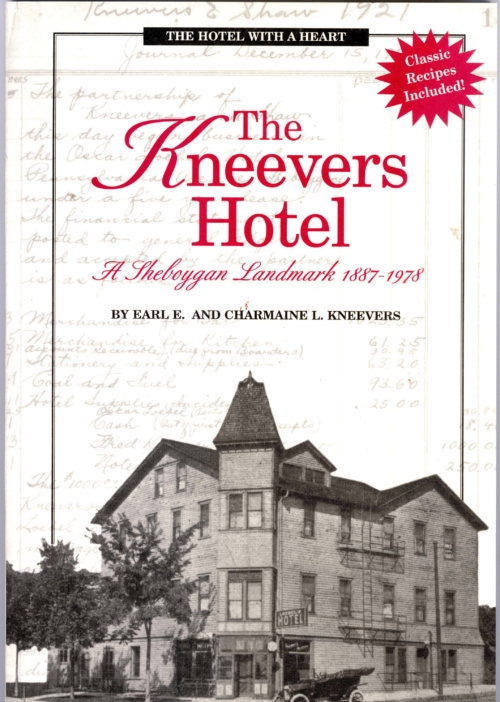-
A Time for Reflection 1892-1992 This booklet was prepared for a centennial celebration of the arrival of the first Volga Germans in Sheboygan, Wisconsin. That small group of seven, unsure of their destination or what they would do when they arrived, was followed by many other relatives and friends. Today, thousands of people who live in Sheboygan - or who lived there at one time - are descendants of German Russian immigrants. “A Time for Reflection” is our anniversary theme, for now is an appropriate time to reflect on our ancestors’ lives and to count the many blessings we have received as a result of their courage and sacrifice. With a new government in power, many Russian people of German descent will be searching for relatives and acquaintances in the West. Many Americans, too, want to be reunited with lost kin. We want to be ready to help each other. The history, chronology, and maps in this booklet represent only a small part of our unique heritage. Here is a brief look at the Volga Deitsch, how they got to Russia and why they came to America, and then to Sheboygan. It is a tale of more than 200 years of travel, hardship and joy endured by our ancestors. Older generations might recall the good times as well as the not-so-good when they read about old customs and practices. Younger people may learn a history they did not know existed. This 2016 update adds extra photos and more history.
-
Sale!
By Bill Wangemann
This second book of Bill’s is a compilation of articles that appeared in the Sheboygan Press during 2004. Many are based on activities of the 1950s
-
Sale!This book covers Oostburg school history from 1899-2005. A great timeline gives the reader a wonderful overview of what happened educationally and socially in Oostburg, Wisconsin. Class photos and memories and reflections are included.
-
Sale!
By Pieter J. Risseeuw
A historical novel, originally published as a trilogy, of Dutch immigration of the mid-nineteenth century. This English translation is made available for the first time by permission of the original publisher and supported by Netherland-America Foundation of New York. Originally published in Dutch in 1947, the novel discusses the trials and tribulations of immigration and the establishment of the Dutch churches and colonies in Iowa and Michigan.
-
Sale!Though we have nothing as dramatic as Pompeii, Mesa Verde or Petra, we, too, have lost settlements. Our lost settlements like Hoard, New Paris, Bear Lake, Gooseville and Hull’s Crossing are lost places of Sheboygan County- communities that were, for a short time, vibrant and busy, but fell into decline and disappeared except for the occasional mention on an old Sheboygan County map.We’ll take a trip back to reconnect with many of our local mysteries.Available about December 6, 2018.
-
By Laura Chase Smith This history of the township of Plymouth, the Villages of Plymouth and Quitquioc, Sheboygan County, Wisconsin was written by Mrs. H.N. Smith. This series of articles was published in the Plymouth Reporter between December 10th, 1872 and June 5th, 1873. It details the lives of Plymouth’s earliest citizens.
-
Sale!By Don Lau This book documents the growth of education in the City of Sheboygan. Did you know that Sheboygan had a Day School for the Deaf, A Fresh Air School- Tuberculosis- as part of the Third Ward School and was the first home of Lakeshore Technical College? Dozens of photos.
-
By John Textor This is the story of the November 1847 sinking of the propeller ship, Phoenix, from a new perspective. Most of the fatalities were of new Dutch immigrants and this book tells of how life might have been different had the catastrophe not happened.
-
Sale!By Earl and Charmaine Kneevers During the late 19th and early 20th century, there was a relatively strong Socialist movement in the United States. Sheboygan, Wisconsin was one of those cities that had an active Socialist Party. The movement believed in public ownership and democratic management of the basic means of production and distribution. It had strong ties to the organized labor movement of the time. A strong leader of the Sheboygan movement was Fred Kneevers, whose history as a struggling worker with a family to support and with Socialist beliefs, brought him into the hotel and restaurant business to support his family when known Socialists were not welcomed in privately run businesses. The Kneevers' Hotel was a successful meeting place of the Socialists.
-
By Janice Hildebrand This book is a tribute to the City of Sheboygan in its sesquicentennial year 2003. The area that is now the city was settled years before 1853, but the city was not chartered until then. This book documents 45 men and women who were important in Sheboygan's early years. Each bio contains one or more photos. 2016 reprint.
-
Sale!This is a reprint and update of the 1976 book done for the Bicentennial. This book was done in conjunction with the 100th anniversary of Falls becoming a city. Trace the evolution of the business district and learn about the wide variety of civic groups which once kept citizens busy. See how the fire department has grown and take a peek at the folks who settled Falls
-
Sale!By Bill Wangemann Mr. Wangemann began writing a weekly column for The Sheboygan Press in January of 2003 to help celebrate Sheboygan’s Sesquicentennial. Contained within this book are all 52 of the columns Bill wrote for the Press. Down By Prange’s brings readers a simpler slice of life. Wangemann paints a realistic picture of Sheboygan’s past, the good and the bad, and you are guaranteed to learn something about old Sheboygan by paging through this collection of columns.
-
Sale!By Don Lau and Shirley Sager The schools covered in this book include Jefferson, South Cedar Grove, West Oostburg, Beaver Creek, Maple Grove, Fairview, Greene, Amsterdam, River Valley, West Cedar Grove, Liberty, Lakeview and Hoard.
-
By Florence Fenner Popp Mohrsville was a small settlement located at the intersection of the Green Bay and Howards Roads in the town of Herman approximately 2 miles north of Sheboygan Falls. In the early 1900s Highway 32 was known as the Green Bay Road, and later for some time, it was Highway 42. Until World War II, County O was known as the Howards Road. Mohrsville consisted of: Starlight School, Mohnsam’s, the old cheese factory where Carol and Manny Zunker lived and Zunker’s garage. It was named for Paul Mohr who formerly owned a tavern there
-
Sale!By Reverend Peter Pernin Rev. Pernin was the parish priest for Peshtigo and nearby Marinette, whose churches burned to the ground. He published his ac-count of the fire in 1874. The late William Converse Haygood served as editor of the Wisconsin Magazine of History from 1957 to 1975. He prepared this version of Father Pernin's account on the occasion of the Peshtigo Fire's centennial in 1971.
-
Sale!By Scott Knickelbine On the night of October 8, 1871, a whirlwind of fire swept through northeastern Wisconsin, destroying the bustling frontier town of Peshtigo. Trees, buildings, and people burst into flames. Metal melted. Sand turned into glass. People thought the end of the world had come. When the "tornado of fire" was over, 2,500 people were dead, and Peshtigo was nothing but a smoking ruin. It was the deadliest wildfire in U.S. history. Kids’ book.
-
Sale!By Richard A. Stoelb This is the story of the men of Company F, 127th Infantry, 32nd Division, Wisconsin National Guard who left Sheboygan, Wisconsin for Federal Service on October 15, 1940. They would fight in the Battle for Buna on the island of New Guinea against the Japanese in World War II. Richard’s father, Roland Stoelb, was one of those soldiers who fought in the jungles of the Pacific to stop the Japanese during World War II. Roland along with dozens of boys from Sheboygan spent their Time in Hell, many of them making the ultimate sacrifice. Richard’s story personalizes the fight in the Pacific and honors the boys from Sheboygan.
-
Sale!By Floyd Odekirk and Adrian Falchion Waiting on DEROS: A Soldier’s Story could not have been accomplished without the efforts of a Veteran, a writer and the spirit of every soldier walking within the pages of this book. Floyd Odekirk pursued the emotional task of bringing back the images of his tour in Vietnam (1968-69) so that the writer, Adrian Falchion, could paint in all its vibrant and dark colors the truths of war. Following the completion of 19 stories, Floyd Odekirk offered the light to his Veteran Brothers Michael Bennett, David Higgins, Craig Johnson, Dale Moravec, Donald Burch, Patrick Callahan, Joseph DeAugustine, Robert Moneypenny, Daniel Michael Pruitt and Thomas Vojvodich who each shared a story for the sake of honoring other soldiers.
-
Sale!Situated on the picturesque western shore of Lake Michigan, is a city of contrasts and conundrums. It is a modern city facing all the challenges of today’s world, ready and willing to transition into the future. But, at the same time it is a city comfortable with long-established customs struggling to keep the time-honored traditions which have made it a great place to live. It is a place where people stay on the same bowling teams for decades, where churches are always full and focused on the community and where everybody knows everybody else in the local taverns. Chapters included in this book include: Blazing Trails; The First Fifty Years; Saloons and Public Houses; Railroads Bring Prosperity; Riding the Trolley; Eighth Street- The Heart of Sheboygan; and Parades, Festivals and Events.
-
Sale!This book takes us back through the history of education in the northwest corner of Sheboygan County. Starting both sections with a history of the named township, this team of writers takes us from the early settling of the area to the recent consolidations. Each school is looked at in detail and the many pictures of facilities, classes and notable events take the reader on an enjoyable journey through the past. Also included are a comprehensive index, 1889 plat map, master plan for education in Sheboygan County and biographies of Ray B. Lightfoot, Violet R. Littlefield and Doris G. Phipps. Schools covered: Russell, Taft, Garfield, Little Elkhart Lake, Joliet, Elkhart Lake, Harrison, Dewey, Lime Ridge, Rhine Center and Victory. Originally published in 1997, this reprint contains updates and improved imaging.
-
Sale!By Robert Matzner Sheboygan resident, Robert Matzner, had a very important story to tell. Friend, Larry Vogel, helped him to put pen to paper. The result is Prisoner 19053, the true story of Matzner’s three years in Nazi concentration camps. Matzner, a native of Poland, lost most of his family to the Nazi’s Final Solution. He somehow survived the horror and came to the United States and Sheboygan with his family in 1949. Robert and Larry have written a remarkable document, a story full of sadness and hope which will touch all readers. The introduction, written by Robert’s son, Murray, is a poignant tribute and a great beginning to Prisoner 19053.
-
Sale!The Random Local History Reader is filled with odd and interesting history. What is the real story of the Dead Horse? Who was the Black Terror of Sheboygan? Have you ever read an obituary for an outhouse? Learn the meaning of the term, Yeggman. Find out why Cupid was baffled. And read the full story behind the murder of revered, early teacher, John Sexton. Great reading for quiet time, you’ll enjoy every story and photo included in this random collection of historical gems.
-
By Richard Zeitlin Between 1820 and 1910 nearly five and a half million German immigrants came to the United States. Most settled in the Midwest and many came to Wisconsin. Learn about the values and the Germans brought with them from the Old Country.
-
By Howards Grove Historical Research Group, Doris Henschel.
Ada was one of four small trading places (Howard, Franklin, Edwards and Ada) in the township in 1912. Ada consisted of a hotel, cheese factory, store and blacksmith. The population of town Herman in 1910 was 1,913, the majority of whom were Germans. This hamlet, located on the old Calumet-Sheboygan Plank Road twelve miles northwest of Sheboygan has a name of unknown origin. The post office was established on January 13, 1868, with Anton Goepfert acting as the first postmaster. Operations were discontinued on November 18, 1873. It was re-established on August 31, 1877, and once again discontinued permanently on April 30, 1909. William Maurer was the last postmaster. The book is full of history and wonderful memories.
-
By Edgar Harvey Jr.
This book deals with many of Ed Harvey’s predecessors as Sheboygan County Surveyors. Harvey, after years of research, found that they included men of great character, and others whom we could term “shysters”. They included some pretty unremarkable individuals and others of great genius. Although they were humble surveyors while they worked in Sheboygan County, some of these men invented great things, or were otherwise involved in major events which changed the history of the entire nation or the world. One man worked on the Brooklyn Bridge project. Another worked on the Panama Canal. At least two of these men prepared maps which shaped the boundaries of nations. With all the same care, the same men prepared surveys which depicted the boundaries of comparatively small, private properties in Sheboygan County; An interesting and fresh way of analyzing Sheboygan County History.
-
By Millersville Historical Research Group
The history of the area dates back to 1846 when the first immigrants found their way along the Pigeon River and settled in the area. At first the two settlements were known as Howards and Mueller Villa, later becoming Howards Grove and Millersville.
But in 1967, the two communities incorporated as Howards Grove-Millersville, becoming Sheboygan County’s 10th village, the fourth largest. It also brought the village fame with its cumbersome 24-letter title, the longest in the state. Eventually, the city dropped Millersville and took Howards Grove as its proper name. This book follows the history of just the Millersville portion of the area.
-
By Rich Dykstra Rich is back with another series of short stories about life in the 1950s and 1960s. Life in the Slow Lane deals with seemingly mundane but very memorable activities that Dykstra participated in as a child – shopping trips to Sheboygan when it took a week or more of planning, going to the outhouse, Friday nights in Sheboygan Falls capped off with a stop at Bob’s Lunch, a one-room school fair, Sundays at Grandma’s, the anxious anticipation of a first Milwaukee Braves game, life in the era of polio and something called Sunday Rules.
-
By Henry Dykstra This wonderful volume includes recollections of the author's childhood in Wood County, Wisconsin during the 1920s and 1930s. While the title sounds like a very long number from an old crank-style telephone, it actually refers to the two parents and ten children in the author's family. Henry Dykstra moved to Sheboygan County in 1941, and farmed there for over fifty years.
-
By Richard A. Dykstra Thirty-five heartwarming stories about growing up in rural Wisconsin during the 1950s and 1960s.
-
Mention the name Prange’s and no matter your age from 40 to 90 you probably have personal memories of the legendary Sheboygan department store. Whether those memories are of the annual animated Christmas window displays and caramel corn, the use of due bills, charge-a-plates, layaways, will-call, the x-ray machine in the shoe department or the escalators, they are shared by many and are part of the cherished collective history of the H.C. Prange Company. This publication is by no means a comprehensive history of the H.C. Prange Company. It is more a trip down memory lane, filled with images, stories and recipes submitted by former employees and loyal shoppers.
-
This collection of stories, images, ads, news articles and factoids is designed to give you an introductory look at the local history of the 1920s and 1930s in Sheboygan County. It deals with vice- Prohibition, prostitution, gambling, raids on stills and crime over two decades. It is by no means comprehensive and much of what has been collected is story. This is meant to be fun and informative -- a great conversation starter.
-
Rebuilding a Railroad in the 21st Century: Sheboygan County, Wisconsin, documents the rebuilding of an 11-mile rail line in Sheboygan County, after being dormant for nearly 30 years. This was more than just a fix-it-up job, but the replacement of the entire line from the ground up with new track built to modern standards to handle heavy loads. It also required one trestle to be completely replaced and others reinforced. Adding to the generous amount of photos, there are “before” and “after” photos taken at dozens of locations, and it won’t seem possible that these photos were taken at the same location. Also included is the history of this line from the pre-civil war era to current times. Old rail dating back over 150 years was found and included is the story that these old rails tell.
-
Since 1953, August brings Bratwurst Day, a celebration of sausage and of our collective German heritage. The brat is a social food in Wisconsin where Germans first introduced it to the New World. We have brat fries on weekends like folks have BBQs in the south and Chicago has its deep dish pizza. It is part of a deep food tradition. Few things identify one’s German heritage more than making sausage. Sausage was a means of survival for our German ancestors during the winter months, as well as a way to use precious meat scraps and pay homage to their porcine good luck charm. This book documents the long and varied history of some of Sheboygan's nearly forty meat markets and sausage producers. We’ll revisit sausage-making in the county and remember the heyday of 1950s Bratwurst Days.
-
The story of the Milwaukee Northern . . . Sheboygan's interurban link to the rest of the world by Peter Fetterer. Available by about November 30, 2018.
-
Across time, cemeteries have acted as places of burial and remembrance, but they also provide vivid records of community history. Whether large or small, well maintained or neglected, historic cemeteries are an important part of our cultural landscape. The vast richness of expression through form, decoration and materials inform our understanding of the individuals buried in historic cemeteries and their cultural significance. The very stones that mark the graves form a museum of their own.
A church’s stained glass windows, to some degree, play much the same role to a community. They tell the story of some element important to the life of parishioners. They uplift, beautify and instruct.
This volume will introduce readers to some of the most interesting and beautiful stained glass windows and cemetery monuments in the county. We’ll discuss the background and history of each form of expression and much more. Consider this a primer to Sheboygan County’s treasures.
-
By Mary Risseeuw
These letters, memoirs and travel journals span a hundred year period (1847-1959) and offer a fascinating view into the lives of the immigrants and their families. Some provide remarkable detail about their journey to America and their struggles to establish a new life. Others offer little beyond the basics: weather, health, crops, births and deaths. Most are grateful for the blessings of God and the fact that they are still ‘fresh and healthy’ (alive and well, in more modern terms!). The criterion for selecting the contents of this book was to present an overview of different settlements in Wisconsin and to provide a glimpse into the differences and similarities between the various immigration waves. There are vivid tales of crossing the Atlantic Ocean and personal glimpses into the Civil War, World War I and World War

